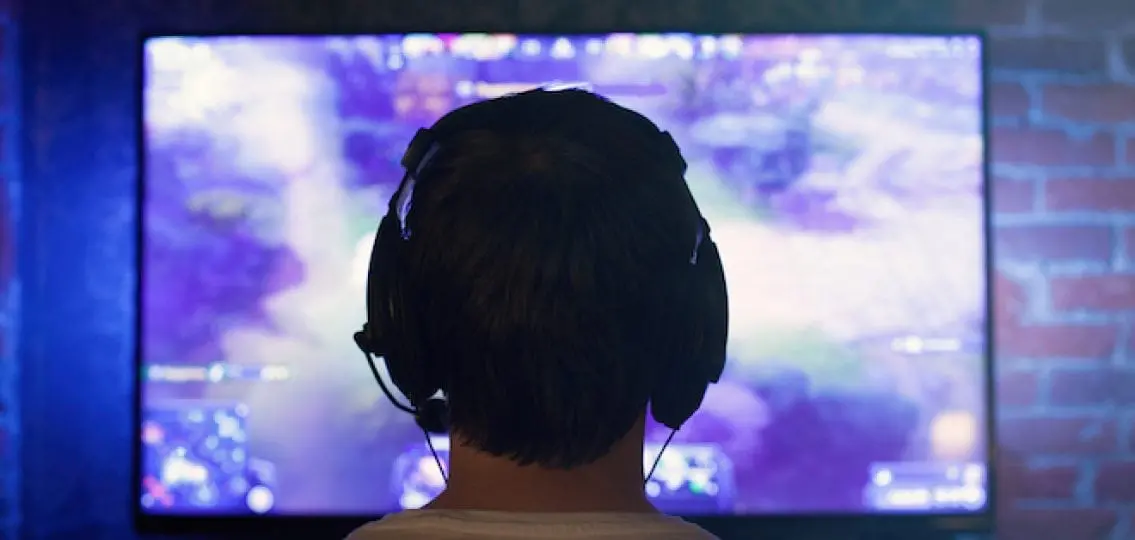Like many parents, I’ve watched the news about recent gun violence with sadness and grief. I hug my 17-year-old son a little tighter these days and hope he never has to face a similar situation.
To be honest, I also wrestle with my own decisions as a parent. I wonder if I’ve done enough to limit my child’s exposure to weapons—because, like many boys his age, my son plays video games that feature guns.
Video Games and Guns
The best thing I can do is to talk to my son about the issues.
“Are those guns you use in Fortnite and CS: GO modeled after real guns?” I asked as I picked him up from tennis practice recently.
“Why,” he said in a defensive tone, “Do you think video games cause violence?”
“No, I don’t,” I said.
“Yeah, in the game there are M-16s and AK-47s,” he said.
“Do you think people should be able to buy those in real life?” I asked.
“Not assault weapons, definitely not,” he said.
I was relieved to hear this, and we talked a bit more.
Multi-player Shooter Games
For a boy who likes video games in today’s world, it seems like an inevitable progression to games with guns. My son started with Disney games, moved onto Minecraft for several years, and then began to play Counter-Strike: Global Offensive (CS: GO), a popular, multi-player shooter game.
My son is part of the new world of electronic sports (E-sports), a growing form of entertainment where professional players earn tens of thousands of dollars. The games are especially prevalent in Europe and Asia.
Early on in his online gaming days, I worried not only about the violence in video games but also the hours spent alone on a computer. One day, I noticed that my son was often talking to a boy named John.
“Who is John and where does he live?” I casually asked my then 11-year-old son.
It turned out John was two years older, lived in Texas and his dad was a trucker. His mom loved to sail. I was eager to learn more about him and his parents.
“Would you like to meet John in person, maybe over summer break?” I asked.
“No, that sounds weird,” my son said.
Online Friends
A few months went by, and my son changed his tune.
“We’re going to meet John this summer, right?” he said boldly over dinner one night.
After a call to John’s parents, we traveled to Texas and spent four days in John’s coastal town. John’s parents took us to the beach one day, and on another, we went sailing. In between John and my son flew a drone and tinkered with electronics. I was thrilled that my son, an introvert, could make a real-life connection with his online friend. They have remained in touch for seven years.
When my son started high school, he expressed an interest in building a more powerful computer to keep up with his games. We agreed to pay for half the project. He gained considerable experience and ended up helping several of his friends build their own desktop towers.
My son and his friends were excited last year when the official CS:GO tournament, with professional players from around the world, came to the local sports arena.
“Dad, you’ve got to live stream this while we’re at the tournament. It’s so cool,” my son exclaimed. “I’m rooting for Ninjas in Pyjamas.”
Still, despite all these shiny elements, at their heart, these games feature guns. At times I still feel uncomfortable watching the shooting on my son’s screen, especially when gun violence is in the headlines.
Gun Violence
Last fall, when a gunman killed 26 people at a church in Texas, I told my son how sad I was.
“That could have happened at our church,” I stated after we had both heard the story on the car radio. “I can’t imagine going on with life after something like that.”
“Why do you think so many of these things happen?” my son asked.
“I think these guys are very troubled, and they do it to get publicity,” I replied.
“Maybe we should stop publicizing these things,” my son responded.
“I don’t know if that’s the answer,” I said. “We have to report what’s happening.”
We have some friends who can’t believe we let our son play games with guns—they prohibit all games with guns.
Instead, we’ve struck a balance. My son has to play a sport and do volunteer work, but he’s allowed to play certain games. Some extremely violent games, like Doom, are off limits. I see banning games a lot like banning a child from TV, social media or rap music. It limits their inclusion in the life of their peers.
Recently I’ve noticed that my son spends less time gaming. He’s choosing to hang out with friends or exploring our local town and the city beyond.
But gaming is still his fall-back activity. And as long as he continues to play, I’ll keep asking questions.
I hope he does too.



